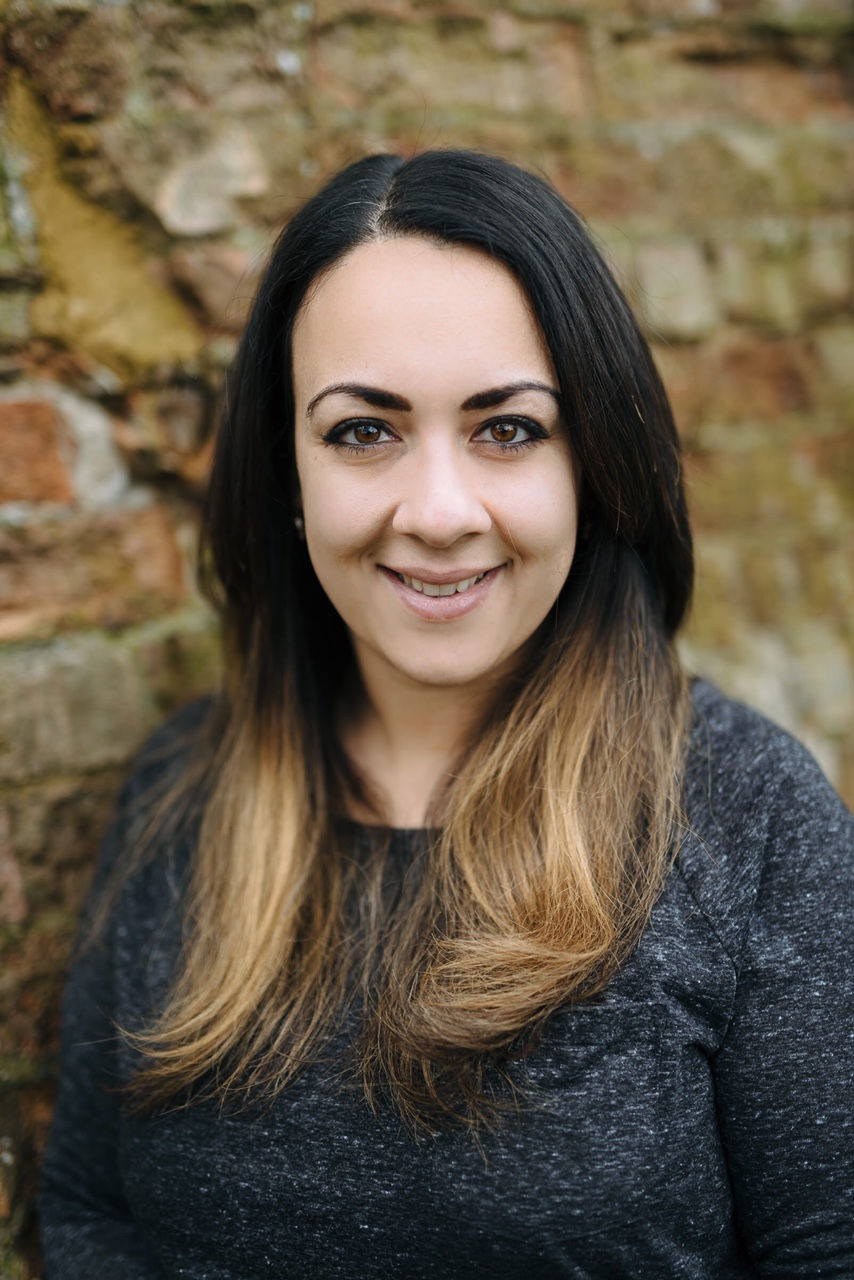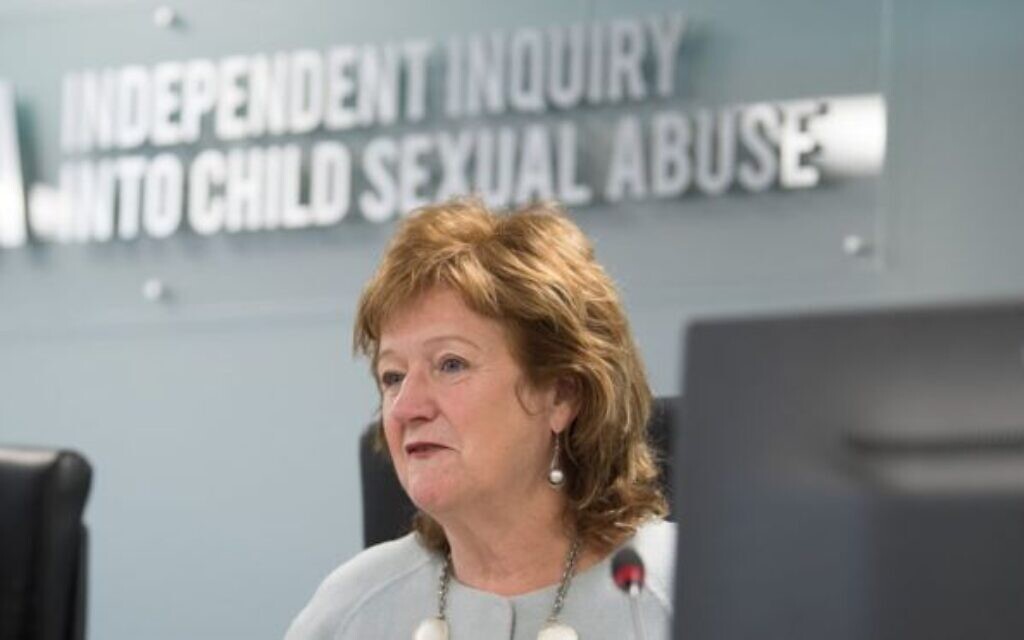‘Consensus in some Jewish communities not to tackle child sex abuse’
Leading campaigner for victims, Yehudis Goldsobel, tells independent inquiry offenders were often 'welcomed back into the community as heroes'
A top campaigner for Jewish child sexual abuse victims has told a national inquiry of a “consensus among Jewish leaders not to tackle it”.
The withering indictment was levelled by Yehudis Goldsobel during an online hearing of the Independent Inquiry into Child Sexual Abuse (IICSA) in which she said offenders were often “welcomed back into the community as heroes”.
The IICSA investigation into child protection in religious organisations and settings, which began on Monday, asks what religious organisations are doing to keep children safe and is chaired by Professor Alexis Jay, a social worker.
Get The Jewish News Daily Edition by email and never miss our top stories Free Sign Up
Goldsobel heads Migdal Emunah, which supports abuse victims, and is one of several Jewish witnesses, alongside the United Synagogue, the Movement for Reform Judaism, Liberal Judaism, the Charedi umbrella group Union of Orthodox Hebrew Congregations (UOHC), and Jewish youth training group Reshet.
Fiona Scolding QC warned that “there is no requirement for external oversight and no minimum standards [of synagogues] unless they run a school or nursery… The Charity Commission’s responsibility is therefore limited”.
The inquiry is asking about organisations’ awareness of child protection, barriers to understanding, training, reporting mechanisms, pastoral or psychological support for victims, DBS recruitment checks, and processes to manage the risk of child abuse.
The hearing analysed the Orthodox Agaduth Israel’s 2011 statement, believed to be its most up-to-date, which addressed the question of whether – and under what circumstances – someone is halachically obliged to report child sexual abuse.
It advises, in essence, that where there is no reason to believe the victim, it should not be reported to secular authorities, and quotes Rabbi Yosef Shalom Elyashiv, “perhaps the most widely respected halachic authority in the world today,” as saying this could lead to “the destruction of the world”.

The advice adds that rabbis should decide whether a case should be reported, and Goldsobel said this is “widely followed by the [Jewish] religious community in the UK,” adding that it “spills over” from the Charedi to the modern Orthodox community.
The hearing also considered the 2015 child protection policy of Yesodeh Hatorah Senior Girls’ School in Stamford Hill.
The policy states that “outside agencies” should be “involved where appropriate and after consultation with the Rabbinate of the Union of Orthodox Hebrew Congregations (UOHC)”.
“Rabbis’ aim and ultimate agenda, and I quote from a rabbi who said it to me, is to protect the face of the community as a collective whole, not the individual who might have been abused… The needs of this one person are almost null and void.”
Goldsobel said that there had been no understanding of the ramifications of sexual abuse in the Jewish community, or of the serial predator. “They will take an offender’s word at face value if they apologise and say they won’t do it again. There’s no external intervention, no professionals get involved.”
She said victims “don’t have the language to report correctly, in accordance to what the police would need to hear,” adding that they are not even taught the names for a penis or vagina, knowing them only as “private parts”.
Read more:
- Campaigner for abuse victims: ‘higher number of clients from Orthodox community’
- Abuser’s victims had been ‘additionally vulnerable due to Charedi upbringing’
Goldsobel, who grew up in Stamford Hill, said Charedi victims “don’t have the resources to access a point to report,” lacking internet or mobile phone access, adding: “They are most certainly aren’t able to go to a police station on their own.
“We are brought up with this understanding that the police are very much ‘them’ and then there is ‘us’. We don’t mix with them or report to them, even more so against another Jew. If you do there are severe consequences.”
The UOHC told the IISCA that child sexual abuse should never be discussed in a Beth Din (Jewish religious court) because it is not an appropriate place for it, but Goldsobel said Midgal Emunah had heard of “multiple” cases in which rabbis suggest that the alleged offender pays for therapy by way of a remedy.
“In their eyes, that’s a really effective way of dealing with the situation. Sometimes it comes from a rabbi’s house meeting, so informally done, so not at the Beth Din, but they still represent the Beth Din even when sitting at their dining table.”
Speaking about how victims who report abuse are ostracised, Goldsobel was asked about mesirah, the action of one Jew reporting another Jew to the secular authorities, forbidden under rabbinic law, and how doing so makes the reporter a ‘moser,’ which is widely acknowledged as a highly derogatory term.
“This is used as a weight or leverage against survivors in reporting their abuse, that you would be classed as a moser – someone who has snitched.”
Scolding said Rabbi Judah Baumgarten, chair of the UOHC’s education committee, had told the IICSA that mesirah did not apply in cases when the reported conduct causes harm to others, such as in cases of child sexual abuse, and that this has been subject to a halachic ruling, and was the opinion of the Rabbinate.
Goldsobel said: “All the Beth Din statements I’ve seen [as part of the IICSA] are along similar lines – after the [Beth Din] rabbi decides if it should be reported, that’s when they say ‘you won’t be a moser because we’re now giving you permission.’
“We have yet to see, in the community, any of these three Beth Dins issue this halachic ruling publicly. If it does exist, we would love it to be put out into the community. It would change everything. It would change people’s lives.”
Asked about offenders’ claims of teshuva, or repentance, Goldsobel said these were “taken at face value… life goes back to normal for them,” adding that there are few if any risk assessments in the Charedi community for those with past convictions.
Offenders “find a pocket of the community where they can become more powerful than before, because they have survived prison, or survived this infliction put upon them through no fault of their own, but most of the time they are welcomed back into regular life as if nothing has happened, in fact as heroes”.
She added: “They are not shunned or even put in their place. A lot of the time they are still welcomed as part of the synagogue service, they’ll still be given honours.”
Asked if she still felt certain figures in the Jewish community were deemed “not capable” of committing child sexual abuse because of their standing, she said it was still an attitude that is “widespread”.
She added: “We have yet to encounter an offender who has just got a terrible record. It’s as if they charm the community with money, resources, time. It buys a following.”
Despite praising Chief Rabbi Ephraim Mirvis, Goldsobel said there was a “consensus among the leadership to accept the status quo, to not challenge abuse, and it makes it really difficult when abuse comes out in any part of the community and the leadership up top don’t want to actively engage in addressing it head-on”.
Pressed on this, she said Mirvis’s statements in recent years were “a start,” but added: “It’s questionable how many of these were off their own initiative, when they saw wrongdoing or opportunity… We need a more proactive approach.
“Child sexual abuse is everyone’s problem… Whether you’re the Chief Rabbi, or the head of the Reform movement, or a lay leader in the community, or a camp leader, or a teacher, we all have a responsibility to be proactive, to not just put out statements about change but to show the change. Otherwise we’ll stay in this cycle of not addressing it unless prompted, or unless a really bad case comes up.”

Thank you for helping to make Jewish News the leading source of news and opinion for the UK Jewish community. Today we're asking for your invaluable help to continue putting our community first in everything we do.
For as little as £5 a month you can help sustain the vital work we do in celebrating and standing up for Jewish life in Britain.
Jewish News holds our community together and keeps us connected. Like a synagogue, it’s where people turn to feel part of something bigger. It also proudly shows the rest of Britain the vibrancy and rich culture of modern Jewish life.
You can make a quick and easy one-off or monthly contribution of £5, £10, £20 or any other sum you’re comfortable with.
100% of your donation will help us continue celebrating our community, in all its dynamic diversity...
Engaging
Being a community platform means so much more than producing a newspaper and website. One of our proudest roles is media partnering with our invaluable charities to amplify the outstanding work they do to help us all.
Celebrating
There’s no shortage of oys in the world but Jewish News takes every opportunity to celebrate the joys too, through projects like Night of Heroes, 40 Under 40 and other compelling countdowns that make the community kvell with pride.
Pioneering
In the first collaboration between media outlets from different faiths, Jewish News worked with British Muslim TV and Church Times to produce a list of young activists leading the way on interfaith understanding.
Campaigning
Royal Mail issued a stamp honouring Holocaust hero Sir Nicholas Winton after a Jewish News campaign attracted more than 100,000 backers. Jewish Newsalso produces special editions of the paper highlighting pressing issues including mental health and Holocaust remembrance.
Easy access
In an age when news is readily accessible, Jewish News provides high-quality content free online and offline, removing any financial barriers to connecting people.
Voice of our community to wider society
The Jewish News team regularly appears on TV, radio and on the pages of the national press to comment on stories about the Jewish community. Easy access to the paper on the streets of London also means Jewish News provides an invaluable window into the community for the country at large.
We hope you agree all this is worth preserving.
-
By Brigit Grant
-
By Laurent Vaughan - Senior Associate (Bishop & Sewell Solicitors)
-
By Laurent Vaughan - Senior Associate (Bishop & Sewell Solicitors)
-
By Laurent Vaughan - Senior Associate (Bishop & Sewell Solicitors)
-
By Laurent Vaughan - Senior Associate (Bishop & Sewell Solicitors)






















